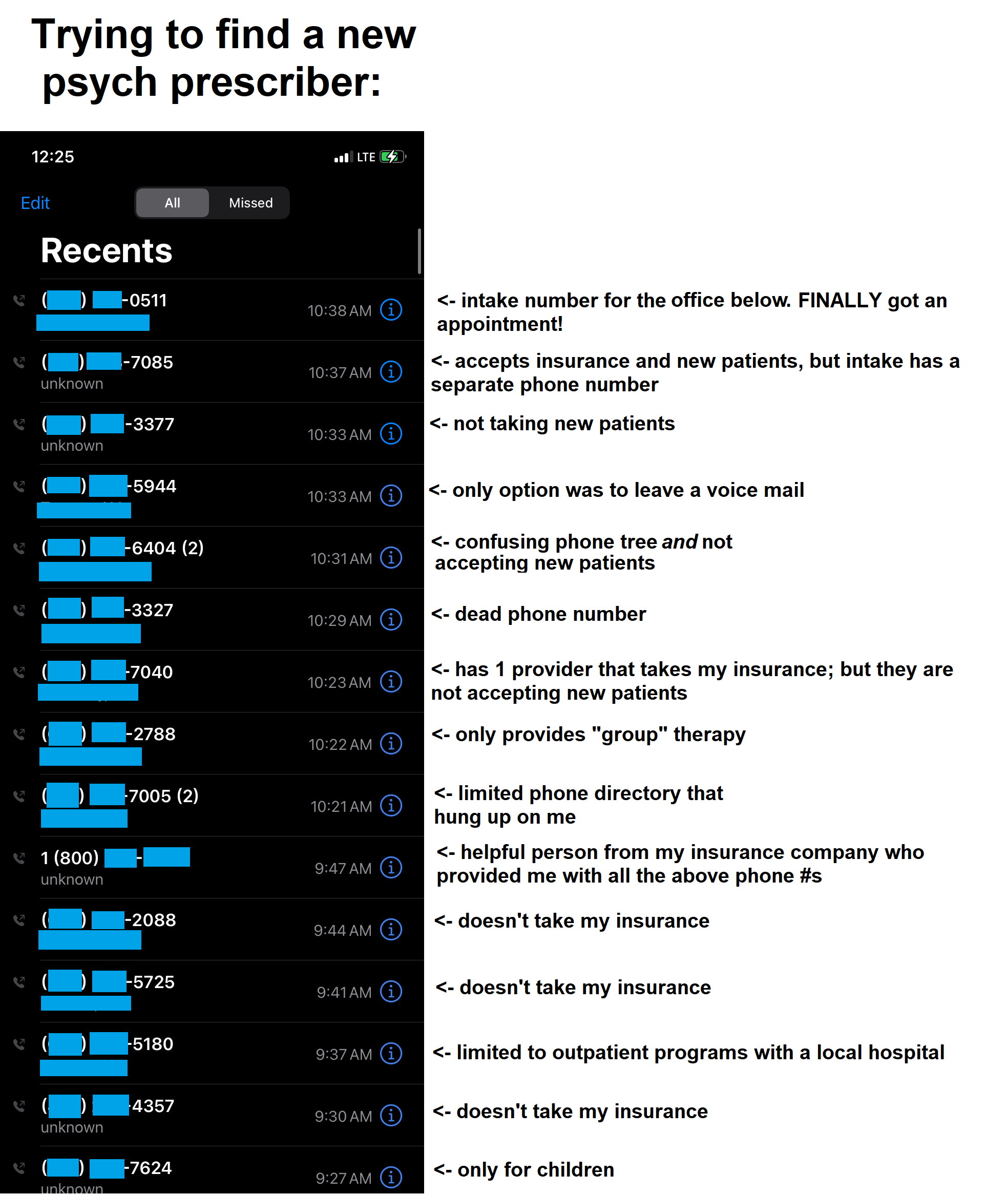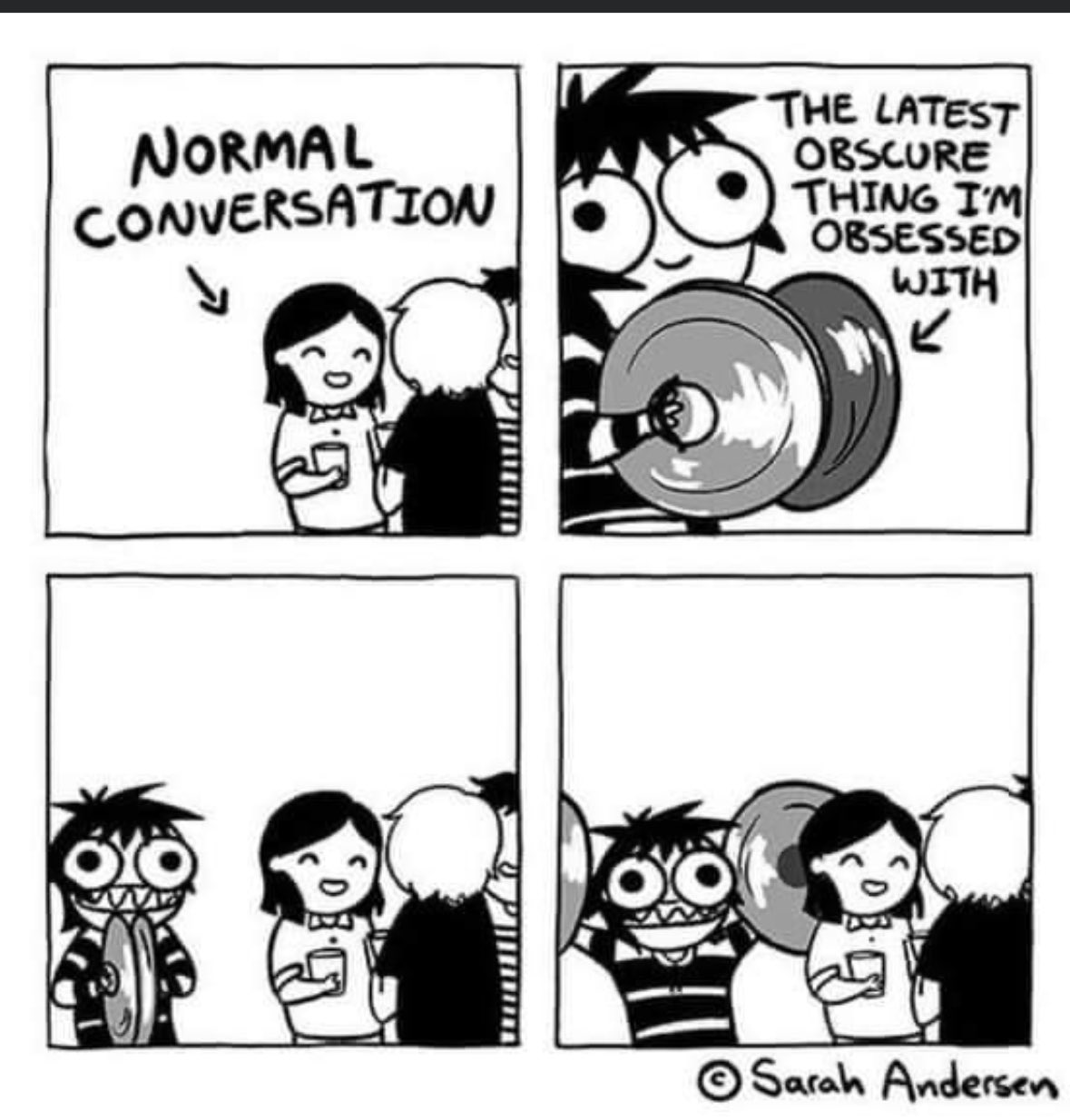I am curious what other folks have to say on this matter. This is quite specific to me, but perhaps pieces will be recognizable.
For me, growing up with undiagnosed ADHD which was really very apparent in every aspect of life looking back, many habits were built up without realizing. I also had a complex childhood dynamic, which I think is likely quite common in those with ADHD given both your own difficulties and the genetic component which means there is a pretty good chance that one of your parents has ADHD and faced similar struggles. In adulthood, it has been tricky to uncover these.
One of the maladaptive strategies I and many others developed in childhood was to lean into the anxiety as a source of stimulation and motivation. Not intentionally, but early on you are rewarded for these behaviours. Maybe...
- You didn't complete the homework but in a panic you get it done during your first class of the day.
- You stayed up all night doing a project that you forgot or postponed.
- You restrained yourself to the point of pain in family gatherings or other important social events.
- You did all of your chores in one angry burst because you were sick of reminders, aggression, or maybe passive aggression.
- After many experiences of getting things in late, losing track of time, or otherwise, you obsessively pay attention to the clock and deadlines.
- Faking illness, to the point of maybe even feeling that illness, to build back capacity after doing all of the previous.
- Many more...
The thing is, staying up late, avoiding stimming or talking, being preoccupied with time, panic working beyond your capacity - this is what likely got praised. Not the way you did it, but the end result. The only breaks were being physically exhausted to the point of people recognizing it as sickness.
In adulthood, I found myself feeling incredibly anxious about any kind of work. Any kind of commitment, really. Getting sick during periods where I can rest. Even with life circumstances being great and surrounded by great people, this feeling persists.
I found that two strategies were built up which evoked exactly the same physiological feelings.
-
Losing track of time and being fully engaged is a super power. I don't want to say ADHD is a superpower; it's a painful disorder, and I do not mean hyper focus here - I simply mean that when I'm not concerned with clock time, it feels free and productive. It isn't appreciated, though, when other people are around or depends on it. The maladaptive strategy? Find timelessness only when alone, avoid commitments which rely on time awareness, and becomes obsessed with due dates and deadlines and not allow myself to enter that timeless state where I really do my best work in fear of losing track.
-
A need for that panic to work. I'm not just talking about leaving things to the last minute as a motivator, but looking at a TODO list and generating a feeling of dread because that's the place you live when doing work. It's like clocking into work and putting on your anxiety hat.
I hadn't quite connected that this was a form of masking when alone, and it was fascinating to imagine taling off that mask and seeing what was left. Realizing that the situation wasn't evoking dread, I was, to make it familiar enough to get things done.
But with the right understanding, I've begun to see the truth in it. It isn't worth making yourself unhealthy and angry and sad to do more than you are capable of. It's also not worth doing that for things you ARE capable of.
Where is the solution?
It's probably different for everyone, and you might need a lot of assistance. I'm early, but I'm noticing lots of positive change. Basically, I'm allowing myself some risk by trying to not engage in those tasks when feeling that feeling. Stop nourishing that behaviour. Take the time to get into a better place, and then engage in the work and things that are tough during that. It's not easy, because it's very different from many years of experience, but it's a different kind of difficulty than the anxious feelings being used as fuel. When anxious, focusing on what's within and outside of my control, and not avoiding the anxiety. When feeling good, going and doing the things currently associated with anxiety, to re-associate it.
Basically, be the guardian you think you needed. Someone to reward your approach and not your results. Someone to say that being healthy is more important than the A. Someone who says it's okay to take a break or get lost in what excites you.
I hope this helps a little bit at least, and I'm interested to hear if others have experience with anything like this and how it's going! This could be linked to many things, but I'm just assuming it's a common history with those who have executive function, emotional regulation, and time perception problems.

